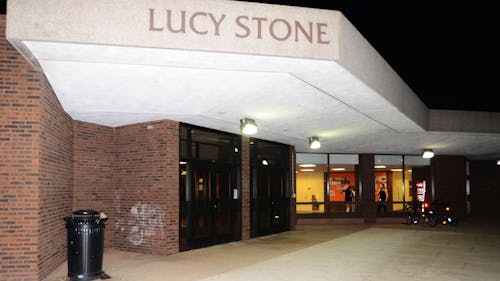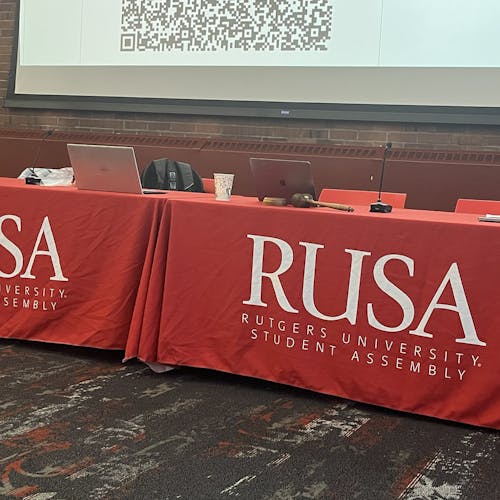Seminar helps alleviate "transfer shock" for incoming Rutgers students

Transferring to Rutgers University can often be a stressful experience, between navigating the five campuses, learning about the infamous "RU Screw" or just trying to figure out the bus routes.
To avoid “transfer shock,” Rutgers University’s Office of Academic Services enrolls incoming transfer students in the Students in Transition Seminar (STS) to help ensure they have a booming college experience.
Transfer students may seem like an anomaly to the majority of Rutgers students, but it is not uncommon to run into someone who came from a community college or another university. The new environment may make them feel disconnected from the Rutgers community, which is where the STS comes in.
STS is a free, pass-or-no-credit 1-credit course, and is held solely for incoming transfer students joining the School of Arts and Sciences (SAS) and School of Communication and Information (SCI). It is specifically designed to introduce transfer students to Rutgers University’s services to aid in their adjustment.
Being educated on all the different resources available is one of the most important things for new transfer students, said School of Arts and Sciences senior John Messina, who is a transfer student and works as a peer mentor for the Transfer Knight Living-Learning Community.
“I was able to find out where to study (and) where to go for help, like getting my papers reviewed and revised,” Messina said.
Students could also go see the transfer advisors however often they would like, he said. He was able to get help from them in mapping out his classes for the entire academic year and getting information on the different minors available.
Another meaningful aspect of taking the STS was being able to <g>meet</g> a lot of people in the same situation, Messina said.
“You have that one element of everyone being a transfer student, so you’re kind of in the same boat,” he said. “I met five of my best friends in that class, and we were able to exchange books together and just explore the campus and learn so much more.”
The main catalyst for successful immersion at Rutgers and the glue that holds the STS together is the Transfer Passport, which is a list of various types of on-campus events that STS students must attend in order to complete the course.
“It’s super helpful but very annoying — you don’t want to do it,” Messina said. “But it helps you get involved right away.”
Students have to complete seven events from a few different categories, which may include sporting events, a health seminar and an involvement fair, he said.
Some students may find completing all seven events difficult, but Messina said that it is not so hard because students should easily be able to fit the course around their regular schedule.
Stephanie Jones, an undergraduate student counselor for the School of Communication and Information, was once a transfer student at Rutgers University herself and uses her experience to help the transfer services team provide as smooth a transition for incoming transfer students as possible.
“We’re acknowledging that students who are transferring to Rutgers are all experts at going to college,” Jones said. “But no one is really an expert at going to Rutgers until they have become immersed in it.”
Part of the main goal of the STS is to bestow upon transfer students advice from a “Rutgers expert,” which could be a graduate student or someone as high up as a dean, Jones said.
“It’s useful because it helps with navigating a new university and its resources," she said.
Although Jones is optimistic about new transfer students’ ability to immerse themselves into Rutgers’ campus culture by way of the STS, she also acknowledges that some might still find it difficult to do so.
“Some students don’t like being told what to do,” Jones said.
She also said that some may feel that they could immerse themselves on their own without outside influence.
“To not have that push to do it sometimes results in students saying down the line ‘I didn’t even know this existed, I wish I got involved in this,’” she said, cautioning that it may result in students failing to experience the best Rutgers has to offer.
Though the transfer program is considered to be very helpful, Jones said that it is always being augmented in order to better meet the needs of students. One new feature that future transfer students can expect is the addition of online modules, which would aid students in understanding their schedules and Rutgers’ online systems, she said.
“The idea is to get interaction going between the other students where they’re comfortable with each other,” Jones said. “I think to hear from other people and know you’re not alone in these experiences is really helpful.”



